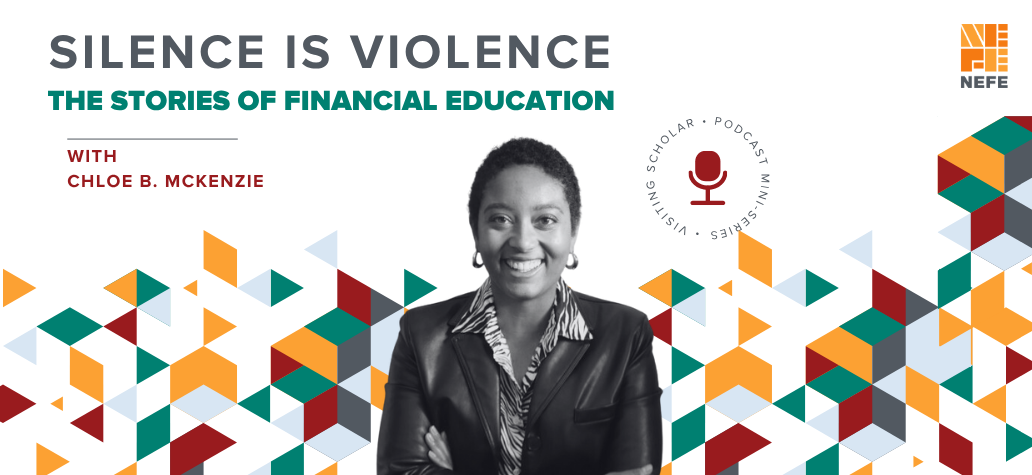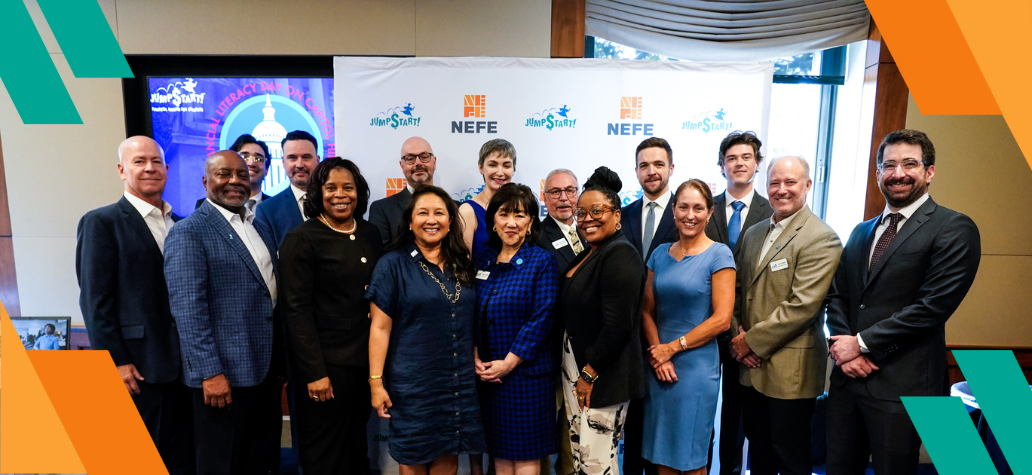DENVER—The National Endowment for Financial Education® (NEFE®) followed up their recent opinion poll of U.S. adults on types of personal finance decisions made by exploring the reasons behind the confidence levels of those decisions. Respondents also identified external resources they typically consult when making those decisions, providing important data the financial services industry can utilize for strengthening legitimacy and creating more relevant research options.
“These results help inform decision makers in the public and private sectors of financial services. If we are to experience growth in the financial education confidence of U.S. adults, while addressing equity issues and improving the quality of resources, it’s these data that will be the foundation for making important strategic decisions,” says Billy Hensley, Ph.D., president and CEO of NEFE.
NEFE utilized AmeriSpeak to conduct its latest opinion poll, which first asked respondents for details about having* or lacking** confidence when making a financial decision. Overall, findings suggest that having (or not having) prior knowledge about the decision was the response most associated with confidence. Also, the youngest respondents (18-29 years old) were generally more apt to state they lack confidence in making financial decisions, compared to the other age groups. Additional data points include:
- Half of adults aged 18-29 years old indicate having people to consult in making certain financial decisions is a source of confidence.
- Male adults are significantly more likely than female respondents to say they felt confident because they had prior knowledge (48% vs. 41%) and to say they made and learned from a similar decision in the past (45% vs. 36%). Conversely, females are significantly more likely to say they felt confident because they had people they could consult with in making the decision (43% vs. 28%).
- Hispanic adults (53%) cite not having prior knowledge to make a financial decision as a reason for not feeling confident. Only 37% of White non-Hispanic adults and 29% of Black non-Hispanic adults cite this as a reason.
- Adults with some college or an associate degree (48%) or a bachelor’s degree or higher (49%) say they feel confident making financial decisions because they had prior knowledge making the decision. Only 36% of adults with a high school degree or equivalent felt this way.
This poll also sought to understand the external resources individuals utilize when making financial decisions***. Overall, 84% of adults use at least one external resource, with consulting family members (51%), Google or other online search engines (35%), friends (28%) and financial professionals from financial institutions (25%) being the most popular resources.
“A large majority of U.S. adults will consult a resource before making a financial decision, but the nature of where that information is consumed varies depending on age, education level, gender and race. The financial services industry must rely on this data to better serve, build trust and gain attention of key demographics,” Hensley continues.
- Overall, 86% of White non-Hispanic adults say they consult any external resource when making financial decisions, compared to 75% of Black non-Hispanic adults and 77% of Hispanic adults.
- Adult females (55%) say they consult family members when making a financial decision, compared to 47% of adult males. However, males (40%) are more likely to say they consult Google or other search engines than females (30%).
- Adults with an annual household income of <$30K are the least likely of the income groups to consult financial professionals from financial institutions (11%) or consult Google or other search engines (29%). Conversely, adults with an annual income of $100K+ are the most likely to consult these resources (34% and 45%, respectively).
- Adults aged 18-29 years old (59%) and 30-44 years old (56%) are more likely than those 45-59 years old (43%) and 60+ years old (47%) to say they consult family members.
- Adults aged 60+ years old are the most likely of the age groups to say they consult financial professionals from financial institutions (35%).
- Adults with a bachelor’s degree or higher are the most likely to say they consult Google or a search engine (49%) and the most likely to say they consult personal finance consultants (27%) or work colleagues (17%), compared to all other education level groups.
For more on this survey, as well as polls on personal financial status, financial education mandates, discriminatory practices by the financial services sector and financial education access, visit the Consumer Poll section of the NEFE website.
*Respondents selected up to two options that applied to them. The options provided in the survey instrument were “I had prior knowledge to make the decision”, “I made a similar decision in the past and learned from that”, “I had people I could consult in making the decision”, “I know where to look for information”, “Another reason”
**Respondents selected up to two options that applied to them. The options provided in the survey instrument were “I had no prior knowledge to make the decision”, “I had not made a similar decision in the past and learned from that”, “I did not have people I could consult in making the decision”, “I did not know where to look for information”, “Another reason”.
***Respondents selected all options that applied to them. The options provided in the survey instrument were “Family members”, “Google or other search engines”, “Friends”, “Financial professional from financial institutions (bank associates, etc.)”, “Personal finance consultants”, “Work colleagues”, “Personal finance books”, “Media (television, radio, etc.)”, “Employers or human resources department”, “Personal finance influencers”, “Social media (Twitter, Instagram, etc.)”, “Community leaders.”



